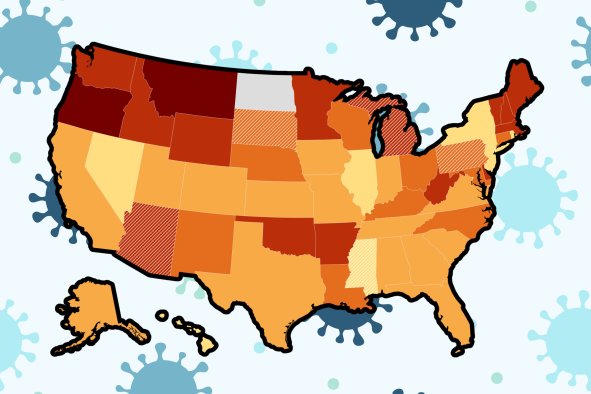Teenagers with obesity who take weight loss drugs such as Wegovy, Ozempic, or Victoza are less at risk of suicidal thoughts and attempts than teenagers with obesity who do not take the drugs, according to a new study published on Monday.
Glucagon-like peptide-1 (GLP-1) receptor analogs—sometimes referred to as GLP-1 drugs or GLP-1 RAs—are a relatively new class of drugs prescribed to treat type 2 diabetes or obesity, that work by mimicking a fullness hormone to slow down digestion, dampen blood sugar spikes, reduce appetite, speed up metabolism, and help people lose weight.
"When comparing those who were prescribed GLP1RAs versus those who received lifestyle modification recommendations, we found a decreased risk of suicidal behavior among those on GLP1RAs," first author Dr. Liya Kerem, pediatric endocrinologist at Hadassah Hebrew University Medical Center, Israel, told Newsweek.
There has been discussion over whether GLP-1 drugs can have negative mental health side effects after Ozempic and Wegovy hit the headlines.
Some people reported symptoms of depression and suicidal thoughts once on the medication—but recent research funded by the pharmaceutical company Novo Nordisk concluded that there was not a link between poor mental health and GLP-1 drugs.
"We focused on this topic because there had been some reports made to regulatory bodies...concerning suicidal behavior following the use of GLP1RAs," Kerem said. "With the growing use of GLP1RAs in adolescents since their FDA [Food and Drug Administration] approval in 2020, it became essential to investigate this possible association systematically. No previous studies had directly addressed this question in adolescents, which made it important to explore in our large cohort."
And now, this research has found that GLP-1 medications such as Wegovy or Ozempic may be associated with a significantly lower risk of poor mental health.
Specifically, they found that teens who took GLP-1 drugs were 33 percent less likely to experience suicidal thoughts, or try to commit suicide, compared with teenagers prescribed diet and lifestyle changes instead.
This was based on analysis of data from 7,000 teenagers in the United States with obesity. Half were prescribed a GLP-1 drug for weight loss, such as Wegovy, and the other half were prescribed a lifestyle intervention instead—such as a nutrition and fitness plan.
The scientists concluded both their research implied GLP-1s were psychiatrically safe for teenagers, and that more research was needed to confirm whether this was true.
Doctors have previously expressed concerns over young people taking GLP-1 weight loss drugs. In the U.S., they can be prescribed for children as young as 10 years old.
GLP-1 drugs come with physical side effects too. This research confirmed that teenagers with obesity who took weight loss drugs experienced more digestive symptoms than those prescribed a lifestyle intervention.
Nausea, vomiting, bloating, abdominal pain, diarrhea and constipation are common on GLP-1s, largely because they slow the digestive process down.
This study was observational, so its results do not mean that GLP-1 is effective at reducing suicidal thoughts.
"Obesity in adolescents is known to be associated with an increased risk of both depression and suicidal behavior," Kerem said. Since weight loss might alleviate these psychiatric comorbidities, it was reassuring to observe a reduced risk of suicidal behavior in the group treated with GLP1RAs."
She added: "However, it is important to note that we cannot infer causality from our study design, and more research is needed to confirm these findings and explore potential mechanisms behind this association."
It may be true that teenagers taking GLP-1 medication were less likely to experience suicidal thoughts because of the social stigma associated with obesity, alleviated by weight loss—or, Kerem told Newsweek, it might be something more than this.
"While this reduced risk could be an indirect result of weight loss, there is also some evidence from preclinical studies suggesting that GLP1RAs might improve depression-related neural processes by reducing neuronal inflammation," she said. "However, this is still an area requiring further investigation."
Do you have a tip on a food story that Newsweek should be covering? Is there a nutrition concern that's worrying you? Let us know via science@newsweek.com. We can ask experts for advice, and your story could be featured in Newsweek.
Reference
Kerem, L., & Stokar,J. (2024). Risk of Suicidal Ideation or Attempts in Adolescents With Obesity Treated With GLP1 Receptor Agonists. JAMA Pediatrics. https://doi.org/10.1001/jamapediatrics.2024.3812
Disclaimer: The copyright of this article belongs to the original author. Reposting this article is solely for the purpose of information dissemination and does not constitute any investment advice. If there is any infringement, please contact us immediately. We will make corrections or deletions as necessary. Thank you.



